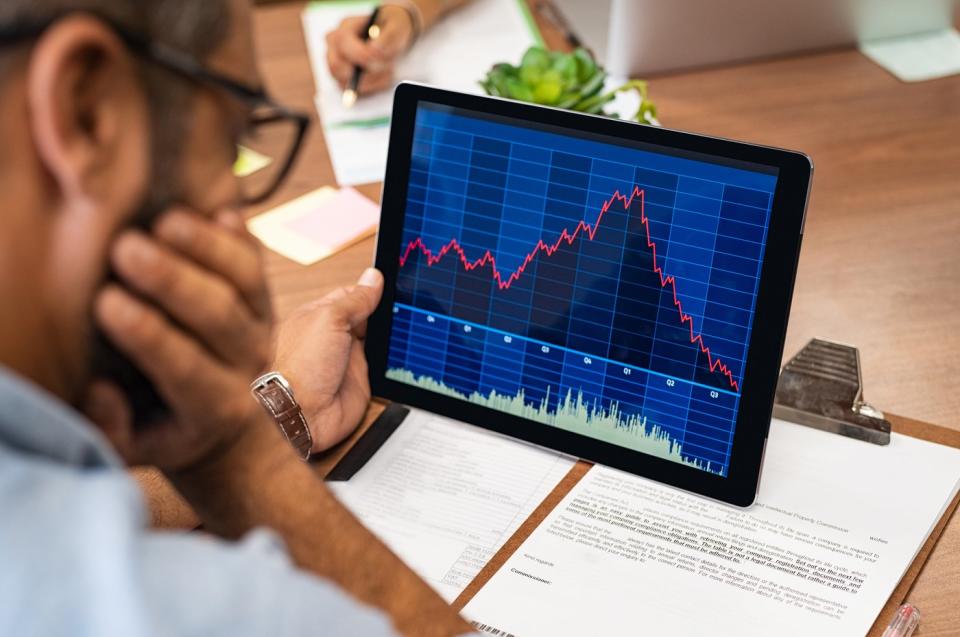CashNews.co
For the better part of two years, no trend has excited investors more on Wall Street than the rise of artificial intelligence (AI).
The lure of AI is twofold. First, there’s the ability for AI-driven software and systems to learn over time without human intervention. The capacity for software and systems to become more proficient at their tasks, or perhaps even learn new jobs/skill sets, gives this technology utility in almost every sector and industry around the globe.
The other reason investors can’t seem to get enough of AI stocks is the eye-popping addressable market attached to this game-changing technology. According to the researchers at PwC, AI is forecast to add $15.7 trillion to the global economy by 2030, with these gains coming from a combination of consumption-side benefits and productivity improvements.
With a seemingly limitless ceiling for AI and an addressable market that dwarfs pretty much every other next-big-thing innovation for three decades, it’s not a surprise to see investors flock to AI colossus Nvidia (NASDAQ: NVDA). Just be mindful that not everyone on Wall Street expects Nvidia to maintain its lofty valuation.


Nvidia’s ascent has been virtually textbook
When 2022 came to a close, Nvidia had a $360 billion market cap and was an important, but not critical, company in the tech sector. Less than 18 months later, it briefly became the largest publicly traded company in the world, with a peak market cap of $3.46 trillion.
Nvidia’s historic gains are a reflection of the otherworldly demand for its H100 graphics processing unit (GPU) used in high-compute data centers. Based on estimates from the analysts at TechInsights, Nvidia has accounted for a roughly 98% share of the GPUs shipped to data centers in 2022 and 2023. In other words, its hardware is being relied on as the undisputed preferred choice for training large language models (LLMs) and running generative AI solutions.
In addition to its hardware being in high demand, Nvidia’s CUDA software platform is doing its part to keep enterprises loyal to its ecosystem of products and services. CUDA is the toolkit developers use to build LLMs and maximize the computing capacity of their Nvidia GPUs.
There’s also plenty of excitement surrounding future innovation. Nvidia’s next-generation Blackwell chip, which will be far more energy-efficient than its predecessor, is set for its debut in the coming months. CEO Jensen Huang also teased the release of his company’s Rubin GPU architecture in 2026, which will run on a new processor, known as Vera. Investing in innovation makes it likely that Nvidia will maintain its No. 1 spot in terms of AI-GPU computing capacity.
Despite this array of positives, big-time Nvidia bears do exist.
Could Nvidia plunge 98%?
Perhaps no Nvidia skeptic has been more vocal on Wall Street than financial writer and economist Harry Dent.
In an interview with Fox News Digital in June, Dent highlighted that the mammoth increase in money supply has set the U.S. economy and stock market up for disaster. He referred to the current market as the “bubble of all bubbles,” with Nvidia expected to be a victim of an upcoming crash. Dent pegged Nvidia’s potential decline at 98%. Dent further opined,
This bubble has been going for 14 years. Instead of most bubbles [going] five to six, it’s been stretched higher, longer. So you’d have to expect a bigger crash than we got in 2008 to ’09.
As an Nvidia bear myself, I don’t expect it to come anywhere close to a 98% downdraft.
Although we have witnessed a couple of next-big-thing market leaders eventually plummet by 98%, including Canopy Growth following the hype in cannabis stocks, and 3D Systems, which has lost just shy of 98% of its value after 3D-printing buzz failed to materialize, a 98% peak-to-trough loss for a market leader is rare.
Furthermore, Nvidia had other established sales channels in place prior to its AI revenue windfall. It’s a leading provider of GPUs used in gaming and cryptocurrency mining, and should enjoy steady gains from its virtualization software segment. While these now-ancillary operations won’t offset substantial weakness if the AI bubble were to burst, they’d almost certainly keep Nvidia from losing 98% of its value.
But even though a 98% decline isn’t in the cards, a sizable drop that could extend beyond 75% is quite possible.


Dent is right about one thing: History
Although Harry Dent’s call for a 98% plunge in Nvidia may be out in left field, he did hit the nail right on the head when discussing history. While history doesn’t repeat to a “t” on Wall Street, it does have a tendency to rhyme.
Since the advent of the internet roughly three decades ago, every highly touted innovation, technology, and trend has worked its way through an early stage bubble-bursting event. Though the timing of when the music stops will differ in every instance, the end result is always the same — market leaders getting pummeled.
Without fail, investors overestimate the utility and uptake of game-changing innovations and technologies. While artificial intelligence appears to have a bright long-term future, the fact that most businesses lack a well-defined game plan to profit in the near-term from their AI investments is a pretty clear indication that investor expectations are vastly outpacing real-world utility. In other words, it points to the formation of an AI bubble.
The vast majority of market-leading businesses for game-changing innovations over the last 30 years have shed 75% or more of their value on a peak-to-trough basis.
There are other potential concerns, too. For instance, insiders have been selling stock for 45 months without a single insider purchase. Though there are benign reasons for selling stock, such as for tax purposes, there’s only one reason to purchase shares on the open market — you think they’ll increase in value. No insider has bought shares of Nvidia on the open market since Chief Financial Office Colette Kress in December 2020.
It’s also logical to expect Nvidia’s monopoly like AI-GPU market share to come under pressure in the quarters that lie ahead. The interesting thing is that internal competition might be even more worrisome than the AI-GPUs its rivals are bringing to market.
Nvidia’s four largest customers by net sales are all internally developing AI-GPUs for use in their data centers. Even with Nvidia’s chips having superior computing capacity, these four customers will likely be incented to utilize their own hardware over Nvidia’s. This is a recipe for fewer orders in the future.
Although a 98% decline is highly unlikely for Nvidia, a steep drop still appears very likely.
Should you invest $1,000 in Nvidia right now?
Before you buy stock in Nvidia, consider this:
The Motley Fool Stock Advisor analyst team just identified what they believe are the 10 best stocks for investors to buy now… and Nvidia wasn’t one of them. The 10 stocks that made the cut could produce monster returns in the coming years.
Consider when Nvidia made this list on April 15, 2005… if you invested $1,000 at the time of our recommendation, you’d have $729,857!*
Stock Advisor provides investors with an easy-to-follow blueprint for success, including guidance on building a portfolio, regular updates from analysts, and two new stock picks each month. The Stock Advisor service has more than quadrupled the return of S&P 500 since 2002*.
See the 10 stocks »
*Stock Advisor returns as of September 16, 2024
Sean Williams has no position in any of the stocks mentioned. The Motley Fool has positions in and recommends Nvidia. The Motley Fool recommends 3d Systems. The Motley Fool has a disclosure policy.
Will Artificial Intelligence (AI) Colossus Nvidia Plummet 98%? was originally published by The Motley Fool
#cashnews #UnitedStates #newsfinace #finance #FollowsCashnews

